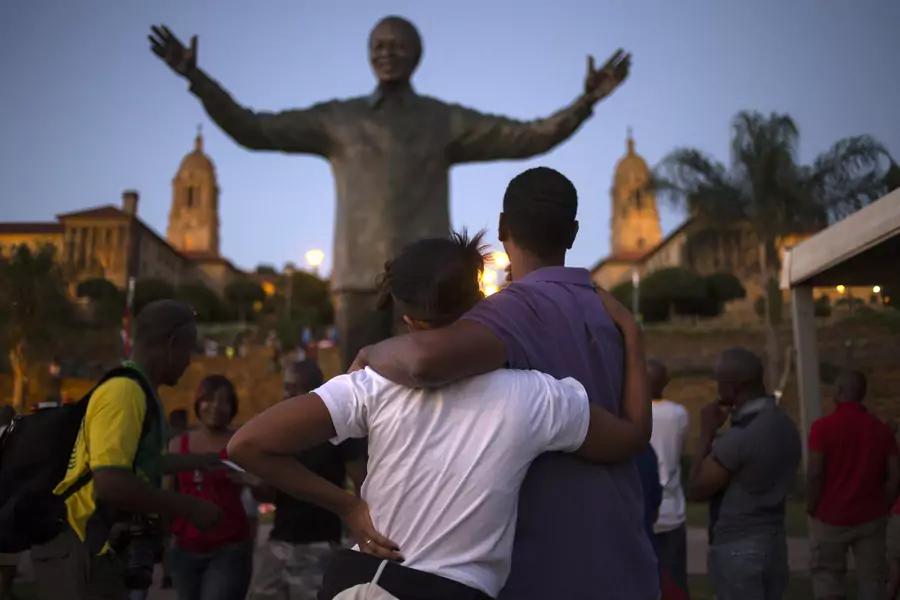History's Verdict Thirty Years After South Africa's Mandela Freed

Thirty years after South African President F.W. de Klerk ordered his release from Cape Town’s Victor Vorster Prison, Nelson Mandela’s reputation as a genuine hero of the twentieth century holds up. With de Klerk and others, Mandela led the successful transition from apartheid to non-racial democracy, forestalling the race war that many thought was inevitable. Nelson Mandela’s outreach to the privileged white minority preserved South Africa’s modern economy, unlike in Zimbabwe where liberation movements expelled or made settlers unwelcome and the economy collapsed. His unswerving commitment to democracy and the rule of law grounds South Africa’s constitution, which is regarded as among the world’s best in terms of protecting human rights.
Nelson Mandela faced criticism from Robert Mugabe, the deceased Zimbabwe tyrant, and many others. That criticism was and still is, essentially, that Mandela conceded too much when he agreed to continued control of the economy by whites and that he did not follow a policy of redistribution of white wealth to the black majority. These criticisms are ahistorical. The transition was a negotiated settlement between the liberation forces of which his African National Congress was the most important. The apartheid-era National Party maintained control of the state and its security apparatus. In other words, the end of apartheid did not represent the liberation movements’ defeat of the National Party. Without the compromises Mandela made, a peaceful transition would have been unlikely and the prospect of a race war and economic collapse would have increased.
More on:
Today, South Africa faces slow rates of economic growth, the persistence of poverty, especially among the black majority, and poor governance exemplified by the Jacob Zuma administration. Despite these challenges, the institutions established by the constitution enables South Africa to persevere, because it provides a framework for addressing the challenges that persist.
More on:
 Online Store
Online Store